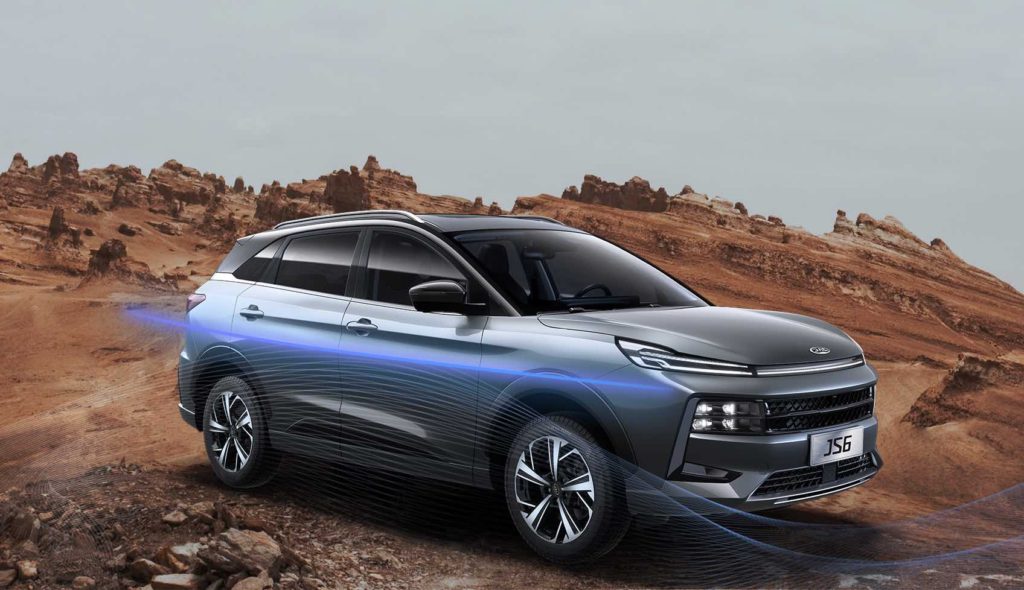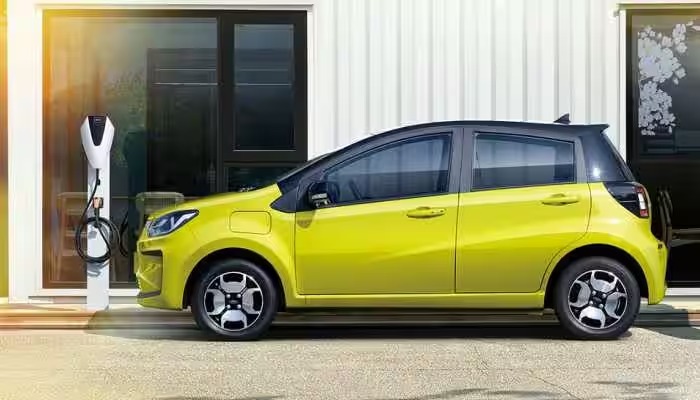Today’s Focus of Attention is reader-supported. We sometimes include products we think are useful for our readers. If you buy through links on this page, we may earn a small commission.
Volkswagen and the Chinese carmaker JAC have unveiled the world’s first electric car powered by sodium-ion batteries, marking a significant milestone that could reshape the global automotive market.
This alliance between JAC and VW will speed up the adoption of this innovative energy storage solution since sodium-ion batteries are an up-and-coming alternative to lithium-ion due to their lower cost and a wealth of sodium resources.
So, when can we expect to see this groundbreaking vehicle, named iEVA50, at car dealerships?
According to JAC, mass production starts this year, and they added that they have secured orders from major fleet operators in China.
Lithium-ion batteries have proven to have a high energy density and quite a long lifespan, but they also carry some downsides, including steep prices and limited access to key materials such as nickel and cobalt, apart from environmental concerns.
In contrast, sodium-ion batteries are made from abundant, low-cost elements and offer performance comparable to lithium-ion batteries in terms of charging time, power output, and energy density.
Furthermore, Na-ion storage units are more eco-friendly as they don’t include flammable or toxic components.
iEVA50 attributes

Sodium-ion batteries emerge from years of research and hard work, and this new vehicle, the iEVA50, is the result of such effort.
The iEVA50 is based on JAC’s current iEVA electric programme but is armed with a 53.6 kWh sodium-ion battery pack that offers a range of up to 500 km and can reach an 80% charge in just one hour.

With a top speed of 160 km/h, this novel compact accelerates from 0 to 100 in only 7.5 seconds.
As expressed by the company, sodium-ion batteries operate in temperatures from -40 degrees Celsius to 70 degrees Celsius, making them perfect for regions with extreme weather conditions.
Among its safety features, the car comes with automatic emergency braking, adaptive cruise control, and lane departure warning.
An Jin, JAC Motors’ Chairman, said, “The sodium-ion battery is a revolutionary technology that has the potential to transform the EV industry.”
“We are proud to be the first company in the world to showcase a sodium-ion battery-powered EV, and we believe this technology will play a key role in the transition to sustainable transportation.”
Mass production of the iEVA50 starts this year, and the carmaker claims the price will compete with other mid-range EVs in the market.
JAC affirms that it already has big orders for the iEVA50. One of them is from Didi Chuxing, China’s largest ride-hailing service.
JAC’s track record

JAC has been making compact, mid-size sedans, and small SUVs since 2010, with over 200,000 units sold to date.
The company is present in over 30 countries and regions, including Europe, Mexico, Chile, and Brazil, and plans to sell an additional 200,000 of its sodium-ion EVs worldwide in 2025.
Xiang Xingchu, Vice President of JAC Motors, said that their goal is to achieve a global market share of more than 10% by 2025, adding, “The launch of our sodium-ion battery-powered EV will accelerate the development of our EV business.”
With the introduction of the iEVA50, JAC Motors demonstrated the capacity of sodium-ion batteries as a viable alternative to lithium-ion.
In this context, Guoxuan’s Chairman, Li Zhen, pointed out that sodium-ion batteries are stable, safe, and lower-cost.
“It’s a new opportunity for the development and popularisation of EVs. We will deepen cooperation with JAC Motors to create a new energy ecosystem integrating EVs and energy storage.”
At the same time, Dr Wenbin Yu, Director of the Institute of Energy Storage at the Chinese Academy of Sciences, who collaborated on the iEVA50’s battery technology, noted that sodium-ion batteries are an ‘important step towards achieving sustainable and green mobility.’
Competitors in the sodium-ion electric vehicle industry
Other Chinese companies, such as BYD, CATL, and Gotion High-Tech, are committing resources to this fresh invention.
For instance, in 2022, CATL revealed they had designed a sodium-ion battery with an energy density of 160 watt-hours per kilogramme, which is not far from the density of the traditional lithium-ion batteries.
Xie Chao, a senior analyst at China Automotive Research, affirmed, “The sodium-ion battery is an exciting development in the EV industry. It offers new options for automakers to create affordable, efficient, and sustainable EVs.”
“We believe that sodium-ion battery technology will play an important role in the future of the EV market.”
Conclusion
There’s a rising need for eco-friendly transport. For that, the automotive sector is exploring more cost-effective and Earth-conscious energy solutions, like the Na-ion battery.
With concerns about climate change escalating, these new technologies, along with hydrogen fuel cells, hydrogen internal combustion engines, and promising lithium-air, oxygen-ion, and water-powered batteries, are crucial in this global crusade against fossil fuels.


